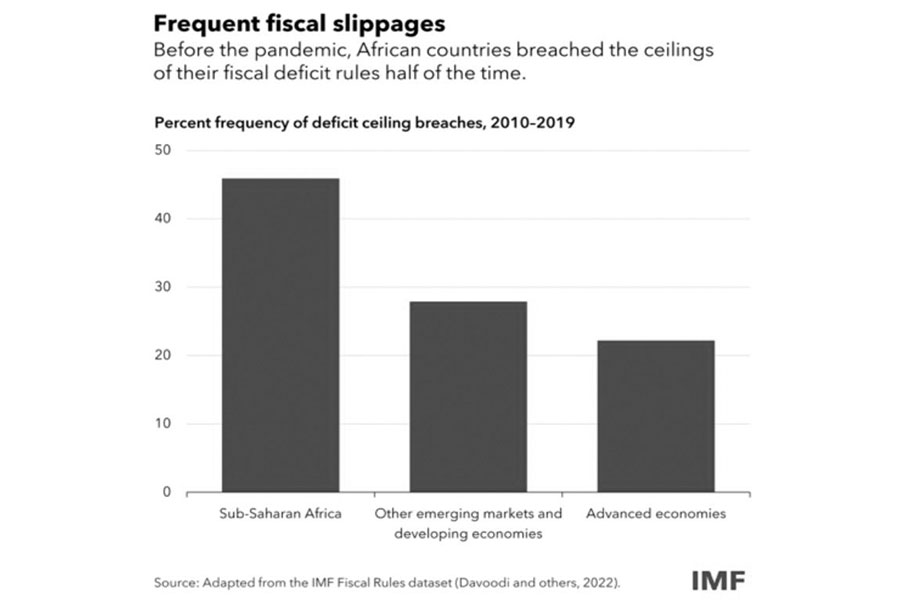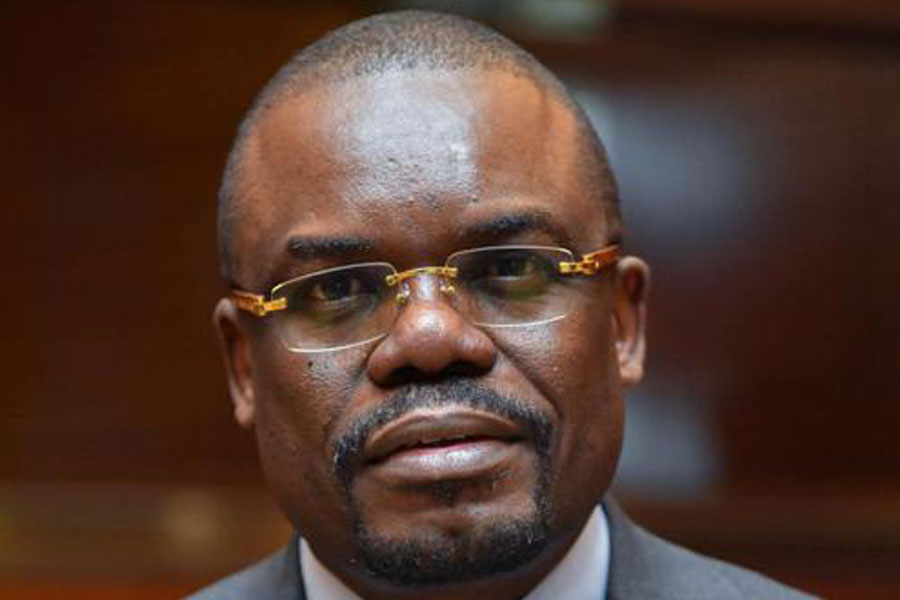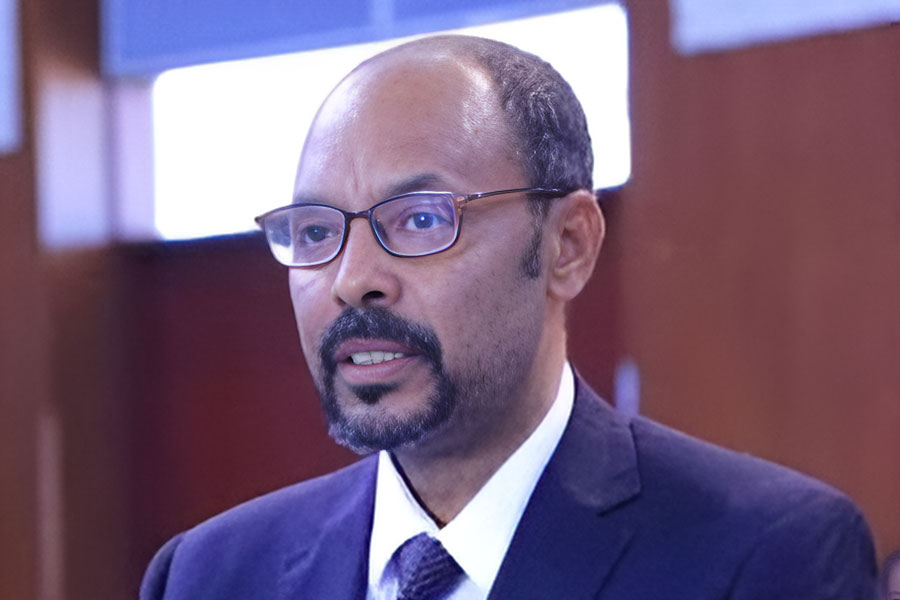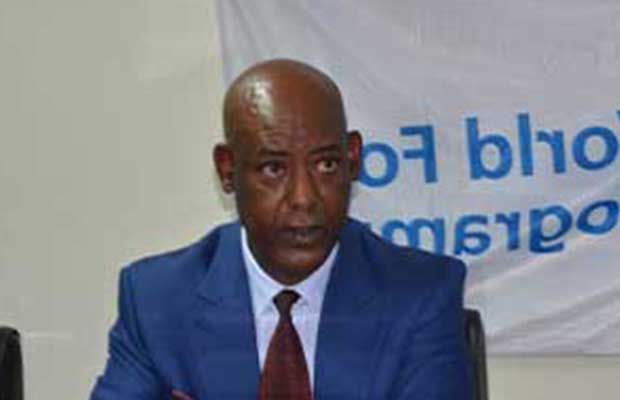
Mar 9 , 2024
By Hintsa Andebrhan
The U.S. Embassy recently disclosed an "investment" nearing 125 million dollars through the President's Emergency Plan for AIDS Relief (PEPFAR), which has been made to strengthen Ethiopia's healthcare infrastructure markedly.
Comprising the construction of six national and regional reference laboratories, renovation of numerous hospital laboratories, and establishment of outpatient care centres, health centres, and pharmaceutical warehouses, the initiative represents a substantial commitment to enhancing the country's health system. The Embassy wishes to see the project's success in expanding service coverage and maintaining a commendable 95pc treatment retention rate among patients. It also hopes the investment will reduce laboratory turnaround times from two months to one week.
Washington has funnelled 13 billion dollars into Ethiopia over the past two decades through the United States Agency for International Development (USAID). The talking point among American officials could be that the "investments" were made mainly on "broadening access to quality healthcare, elevating educational standards, and promoting an economic environment driven by the private sector's dynamism and innovation."
However, the term "investment" employed in this context does not fit with the conventional understanding tied to foreign direct investment (FDI) but rather encapsulates a strategic deployment of American resources to exert soft power and secure political leverage in Ethiopia. It is a subtle relationship between aid and investment, where the former, despite its benevolent facade, often serves broader geopolitical objectives.
The diplomatic ties between Ethiopia and the United States, spanning over a century, present a long history of cooperation and tension. Yet, a closer look at foreign direct investments from the United States to Ethiopia reveals a cautious, if not reticent, reality towards engaging in more substantial business ventures akin to those observed in Egypt and Kenya. The disparity should raise eyebrows about the standards and considerations guiding American investment strategies across Africa.
As the largest beneficiary of U.S. direct investment in Africa, Egypt hosts significant American business interests, including Apache Corp Texas and notable corporations such as General Motors, Johnson & Johnson, Marriott, and Coca-Cola. These investments point to Egypt's strategic importance to American interests and position it as a vital regional economic hub. Similarly, Kenya's FDI landscape is notably enriched by U.S. companies, with a total FDI stock of 10.4 billion dollars, of which American firms contribute 10.3pc.
Contrastingly, U.S. direct investment in Ethiopia, despite the presence of American giants like Boeing, Corteva, General Electric, and Coca-Cola, remains relatively modest at 29 million dollars. Compared to the substantial aid provided, this figure paints a picture of a partnership heavily skewed towards compassion rather than equitable economic engagement. The involvement of companies such as Corteva, funded by USAID, further blurs the line between commercial ventures and aid-driven projects, casting doubt on the nature of the business that brings the companies to Ethiopia.
The dichotomy between aid and investment should invite a deeper reflection on Ethiopia's limitations as a potential destination for foreign investments. Despite the significant aid flows from the U.S., the conspicuous absence of more FDI raises questions about trust, risk assessment, and the broader standards American entities employ in selecting their investment battlegrounds. The success of Chinese companies in Ethiopia's investment landscape, often through a model that blends loans with infrastructure projects executed by Chinese firms, suggests an alternative paradigm of engagement that, while not without its critics, has delivered tangible benefits and infrastructural development in the least developed economies such as Ethiopia.
The comparison with China's engagement strategy, often criticized for creating dependencies on debt-driven investments, nonetheless demonstrated a willingness to embed within the Ethiopian economic fabric in a manner the Americans have yet to grasp.
Ethiopians' perception of the United States' role in their country is convoluted, shaped by historical legacies, contemporary political realities, and the impacts of external powers' involvement in their daily lives. Their awareness of political dynamics and the implications for sovereignty, economic development, and national identity transcends traditional aid paradigms. The concerns lie in addressing immediate health and humanitarian needs and promoting a genuinely reciprocal partnership, grounded in economic cooperation, and respectful of Ethiopia's aspirations for development and autonomous policy space.
PUBLISHED ON
Mar 09,2024 [ VOL
24 , NO
1245]


Radar | Sep 14,2019

Viewpoints | Jun 15,2019

Commentaries | Sep 30,2023

Radar | Feb 25,2023

Fortune News | Oct 24,2020

Radar | Oct 08,2022

Verbatim | Apr 08,2023

Exclusive Interviews | Jan 05,2020

Commentaries | May 31,2025

Radar | May 18,2024

My Opinion | 131658 Views | Aug 14,2021

My Opinion | 128022 Views | Aug 21,2021

My Opinion | 125985 Views | Sep 10,2021

My Opinion | 123609 Views | Aug 07,2021

Dec 22 , 2024 . By TIZITA SHEWAFERAW
Charged with transforming colossal state-owned enterprises into modern and competitiv...

Aug 18 , 2024 . By AKSAH ITALO
Although predictable Yonas Zerihun's job in the ride-hailing service is not immune to...

Jul 28 , 2024 . By TIZITA SHEWAFERAW
Unhabitual, perhaps too many, Samuel Gebreyohannes, 38, used to occasionally enjoy a couple of beers at breakfast. However, he recently swit...

Jul 13 , 2024 . By AKSAH ITALO
Investors who rely on tractors, trucks, and field vehicles for commuting, transporting commodities, and f...

Jun 28 , 2025
Meseret Damtie, the assertive auditor general, has never been shy about naming names...

Jun 21 , 2025
A well-worn adage says, “Budget is not destiny, but it is direction.” Examining t...

Jun 14 , 2025
Yet again, the Horn of Africa is bracing for trouble. A region already frayed by wars...

Jun 7 , 2025
Few promises shine brighter in Addis Abeba than the pledge of a roof for every family...

Jun 29 , 2025
Addis Abeba's first rains have coincided with a sweeping rise in private school tuition, prompting the city's education...

Jun 29 , 2025 . By BEZAWIT HULUAGER
Central Bank Governor Mamo Mihretu claimed a bold reconfiguration of monetary policy...

Jun 29 , 2025 . By BEZAWIT HULUAGER
The federal government is betting on a sweeping overhaul of the driver licensing regi...

Jun 29 , 2025 . By NAHOM AYELE
Gadaa Bank has listed 1.2 million shares on the Ethiopian Securities Exchange (ESX),...